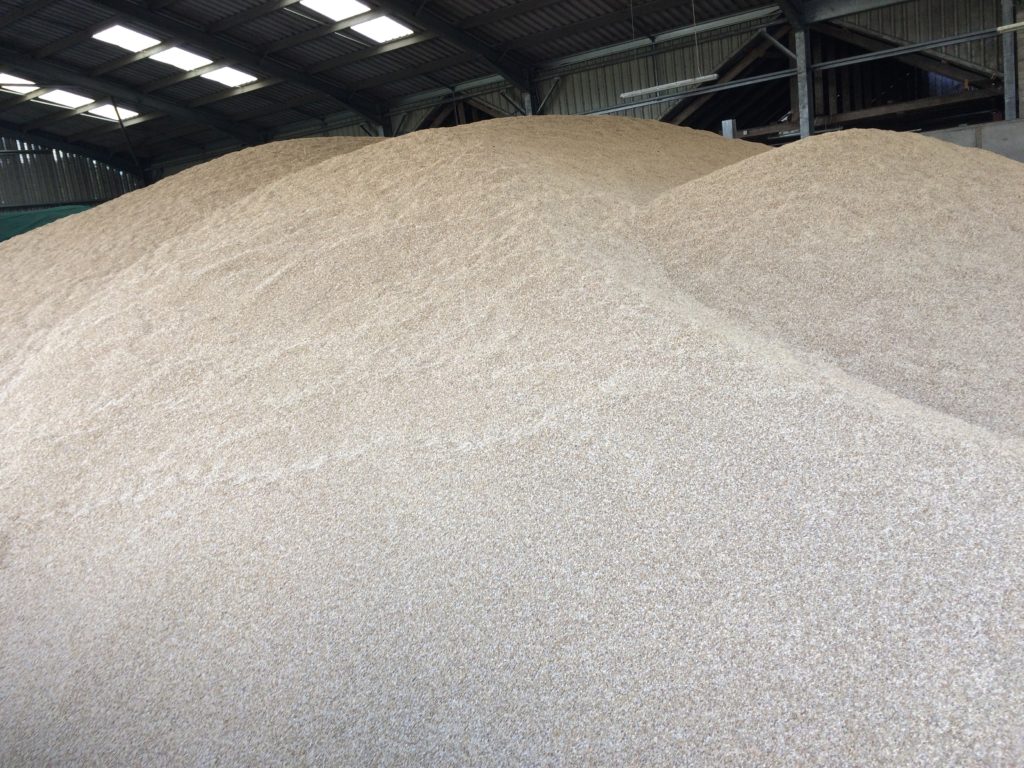Feed Industry: Messages during Covid-19
30 March 2020The challenges for feed suppliers
The feed industry has experienced a knock-on effect from the closure of distilleries, mainly caused by staff shortages. These closures are likely to make draff, and other moist or wet by-products, along with distillers dark grains harder to source.
Haulage, for now, is fully functional however it is getting harder to source as time goes on; mainly due to staff shortages being an issue, but also with the closure of quarries, sawmills etc., lorries are not getting loads to collection points or return loads after deliveries which is now pushing up the haulage rates. This could become a problem for fertiliser delivery.
Actions
Actions to take now are:
- Speak with your feed suppliers and ensure orders are placed well ahead of time due to both seasonal demand and the availability of delivery drivers.
- Calculate your demand for feed for say the next 3 months and where possible the minimum number of deliveries needed to the farm. This helps both parties to better plan supply and haulage requirements, whilst reducing the number of farm visits and farmer contact required. Forward planning also allows suppliers to have the best opportunity to source the product required or alternatives if necessary. The current situation highlights the value in forward contracting a percentage of your requirements to provide some assurance.
- If you are forward buying feed to cover requirements for a longer period of time than usual (say 3 months) to help minimise the number of deliveries, it may be worth asking your supplier whether you can spread payments over the 3 month period, rather than having a one-off larger feed bill than usual.
- The message from suppliers is not to start stockpiling but be organised and keep feed supplies full. More than ever it is important to keep ahead of the game and when delivery slots become available you need to have the flexibility to make room on the farm to accommodate this. In most cases, it is something you will need, so take the opportunity to get it on the farm when you can.
- Another important action to take in terms of helping to limit the spread of Covid-19 is to make sure your feed supplier has your up to date, valid mobile phone number and email address to allow accounts to be emailed. This removes the need for post and receiving paper copies and also helps when most companies now have staff working from home.
Feed Market
The key message from the feed industry is not to panic!
Although there has been a sudden increase in the price of raw materials (soya +£100, rapeseed meal +£40, distillers +£30, grain +£10-15), the medium to long term picture is better. The global supply of soya, wheat, maize and barley looks good which should, therefore, temper prices. Communication with shippers and home producers suggest they are continuing to function as normal.
The Agricultural Industries Confederation (AIC) are lobbying to get a better nationwide position on key worker status with the priority being for factory operators and delivery services. The Scottish Government has identified food production as a critical industry and information from the AIC states that government have assured them this includes the whole agri-food supply chain. More information can be found here.
Mary Young, for the Farm Advisory Service.
Sign up to the FAS newsletter
Receive updates on news, events and publications from Scotland’s Farm Advisory Service

